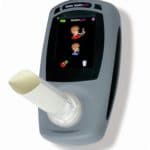What is irritable bowel syndrome?
According to researchers at Monash University, “Irritable bowel syndrome (IBS) is a common functional gastrointestinal disorder affecting one in seven Australian adults and is also common in the USA, Europe and many Asian countries. IBS is characterised by chronic and relapsing symptoms; lower abdominal pain and discomfort, bloating, wind, distension and altered bowel habit (ranging from diarrhoea to constipation) but with no abnormal pathology.”


How is IBS diagnosed?
IBS should be diagnosed by a medical practitioner. The symptoms of IBS can mimic that of other conditions such as coeliac disease, crohn’s disease or ulcerative colitis. These latter gastrointestinal conditions can have far greater consequences on your health. It is for this reason that a medical practitioner must first eliminate these conditions as a potential cause of your gastrointestinal symptoms. Before eliminating any foods you suspect as a trigger for your symptoms, first see your GP for a thorough investigation. If you suspect a gluten intolerance then it’s critical that you continue to eat gluten while your medical practitioner investigates. If you are not exposed to gluten then there is a chance you will falsely test negative to coeliac disease.
Can diet help?
Approximately 75% of IBS cases find relief with adherence to a low FODMAP diet. FODMAP stands for Fermentable, Oligosaccarides, Disaccharides, Monosaccaharides and Polyols. These are all types of carbohydrates that are fermented in the bowel and may cause bloating, discomfort and disordered bowel habits. This video from Monash University provides a great explanation of IBS and FODMAPs.
As there are a range of FODMAPs, it is important to investigate which of these you may be intolerant to. If you restrict all FODMAP containing foods then you may be restricting foods unnecessarily, putting yourself at risk of nutrient deficiencies. Investigating FODMAP intolerance’s is done via either a low FODMAP diet followed by a series of FODMAP challengers, or by hydrogen breath testing. Hydrogen breath testing is a non-invasive technique that determines your absorptive capacity for particular FODMAPs. When FODMAPs are fermented in the bowel, hydrogen is produced and can be measured in the breath through one of our hydrogen breath testing instruments. Only one test can be performed each day, and the duration of each test is usually 2-3 hours. The tests performed are:
- Lactulose This test is the first in a series of tests. The lactulose test can be used to identify small intestinal bacterial overgrowth (SIBO), orocaecal transit time (speed you digest food) and most importantly, hydrogen production. Approximately 5% of people do not produce hydrogen. If you are experiencing bloating and discomfort without hydrogen registering on the device, it is safe to say you are a non-hydrogen producer.
- Lactose This is the main carbohydrate found in dairy foods. Some people lack the enzyme lactase that digests lactose in order for it to be absorbed. Others may have had a recent gastrointestinal condition that has temporarily reduced their levels of lactase.
- Fructose This is the main sugar found in fruit and a number of legumes. Some people may not absorb fructose efficiently when it is in high concentrations or found in much greater proportions to that of glucose (which facilitates its absorption).
- Sorbitol This is one of the polyols. It is found in a variety of foods, particularly in fruits. It is used frequently as a sweetner in gum and is known to cause diarrhoea due to it’s limited absorption.
- Mannitol Mannitol is another polyol and like sorbitol is found in a variety of foods. Mushrooms are a well known source of mannitol.
- Glucose Testing for hydrogen levels with glucose is not related to FODMAPs, however it can be used to determine SIBO. This is not routinely performed but in certain cases may be needed to provide further evidence of SIBO.
There are other FODMAPs that are not tested via breath test. This is due to the fact no one absorbs these therefore breath testing is of little diagnostic use. Hydrogen breath testing is more about ruling foods in then it is about ruling foods out. Most people suspect certain foods cause irritable bowel symptoms and may restrict them on this basis. The problem with restricting foods on suspicion is that it may have been another food that caused the symptom. We digest food at varying rates and we often eat another meal or snack before the effects of the earlier meal are being felt. This often leads to a false self-diagnosed food intolerance. I have recently tested clients who for years have been restricting certain FODMAPs, despite us discovering they were absorbing these FODMAPs all along. This opened up a whole range of foods that were previously thought to be unavailable to them. If you’re interested in hydrogen breath testing follow this link to make an appointment and request further information https://cqnutrition.com.au/irritable-bowel-syndrome-breath-testing/ An elimination diet may assist you to determining which of the FODMAPs you are intolerant to also. This requires an initial dietetic consultation followed by a strict 2-3 week low FODMAP diet. Once you have established that there has been an improvement in your gastrointestinal symptoms, a further dietetic consult is required to assess and plan your FODMAP food challengers. This process can take weeks to months to complete depending on your reactions to the particular challengers. If you do observe a reaction to one of the challengers, it is important to halve the dose and retrial that FODMAP in order to establish how much of that FODMAP you can tolerate. A final dietetic consult is required to assess your diet for nutrient adequacy based on the probability of food restriction. This method can be a very effective and cost efficient way of identifying FODMAP intolerances. This process is not quite as diagnostic as hydrogen breath testing, however if the client is confident in their ability to strictly adhere to a low FODMAP diet throughout the challenge period, it can be very useful in determining intolerances.







